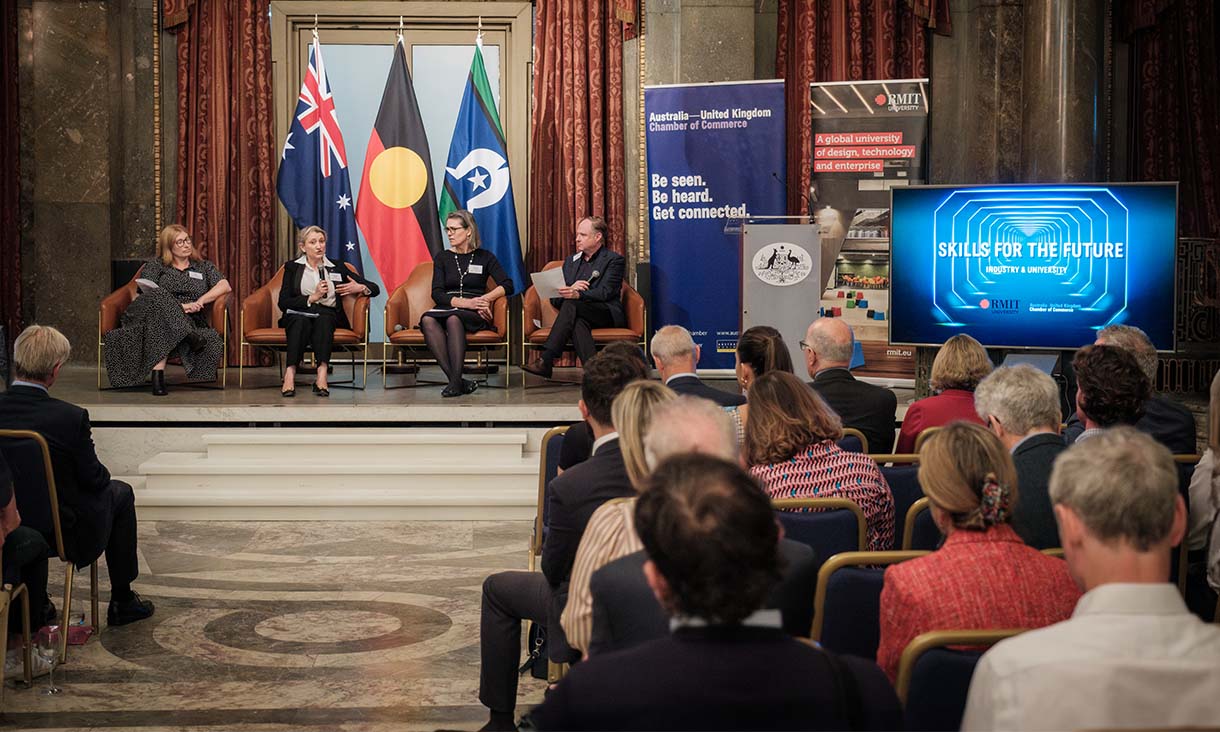As the European Year of Skills draws to a close, experts share their insights on what we need to keep thinking about.
Saskia Loer Hansen, Deputy Vice-Chancellor International and Engagement and Vice-President, RMIT University
“We must foster lifelong learning, equipping learners to navigate complex career challenges and seek new learning opportunities.
“Focusing solely on closing a skills gap overlooks the constantly changing world that we live in and the requirement to develop new skills.
“We need more generalist and human skills like leadership, motivation, and interpretation, which can be a useful counterbalance to the rapid changes to specialist skills, particularly in some of the fast evolving industry sectors like renewable energy.”
Elizabeth Vega OBE, Group CEO, Informed Solutions
“Our firm specialises in AI, data science, and cloud and hybrid service architecture, and we are committed to bringing on graduates and early career professionals. However, work readiness is a challenge.
“We believe skills are developed through a combination of attitude, aptitude, motivation, and training.
“When it comes to workforce shifts, instead of just offering redundancy packages, we need to address employees' re-employability.
“But this shouldn't solely be an employer's responsibility.
“This requires a collaborative approach involving government policy, universities, and learning institutions to create an environment that attracts people and encourages lifelong learning, rather than discourages them from picking us new skills.
“Redundancy is a negative experience, but we need to help people see the opportunities it can bring, without employers bearing the full burden.
“The solution isn't clear, but this is the conversation that leaders need to have.”
Andrew Grill, Chief Futurist, The Actionable Futurist®
“Those who've used Chat GPT might not realise it can write code, suggesting a future where coders may not be needed. Could they become project managers instead?
“If coding becomes obsolete, it'll have to transform into something else.
“If we acknowledge a skills gap, we can identify what and where these skills are.
“Consider the jobs and skills we might need in five years, some of which we can't even imagine now.
“For instance, a book I read proposed a future job of a non-human resource manager – someone to manage robot emotions, so who knows what skills we might need in the future?”
The Skills for the Future Forum, hosted by RMIT Europe and the Australia-United Kingdom Chamber of Commerce at Australia House in London, examined and questioned future education, its accessibility, and delivery methods.
Speakers discussed future skills, tools, delivery methodologies and the crucial collaboration between industry and academia for career preparation in the dynamic job market.
Attendees included the Australian High Commissioner to the United Kingdom, The Honourable Stephen Smith, RMIT University's Vice-Chancellor and President, Professor Alec Cameron and RMIT Europe's Executive Director, Professor Marta Fernandez.
Story: Aеden Ratcliffе




